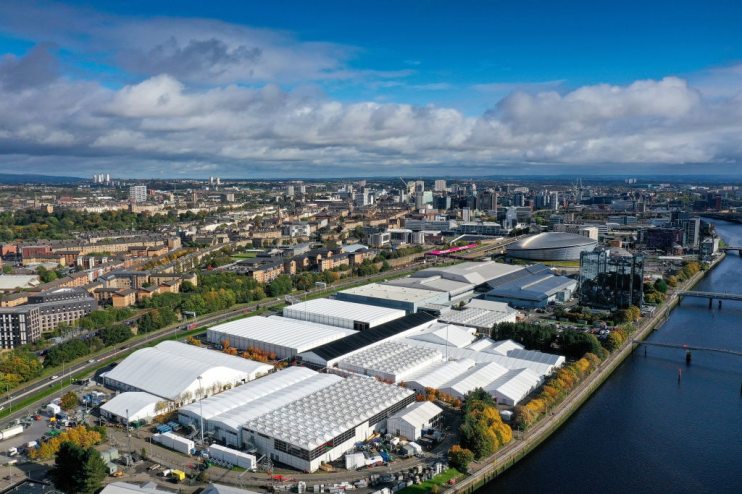We could make Glasgow great again if London and Edinburgh can get along

Glasgow is the fifth largest city in the UK, easily the biggest in Scotland, though still smaller than it was 50 years ago. The Dear Green Place, more aptly tagged “No Mean City” in the 1930s, was once the second city of the empire, a global hub of shipbuilding and coal-mining, beautified by trade barons and stuffed to the gunwales with workers.
Next month, the city will host Cop26, the United Nations-sponsored global conference on climate change. It is the UK’s moment in the spotlight, and while it is a huge opportunity for the government to stake out its leadership on environmental issues, it is also a stage on which Glasgow can strut, a stage of the kind it has not had for decades.
Cards on the table: my family is from the west of Scotland, my parents grew up in the suburbs around Glasgow and it was the grimy but flickering star around which everything revolved. So in my bones I want to see it do well.
But reviving Glasgow’s fortunes—and there is so much to do—would be the perfect expression of “levelling up”, breathing new life and new prosperity into an ailing industrial giant.
The challenges are severe. Even after controlling for deprivation, the statistics show that life expectancy in Glasgow is among the lowest in Europe. A quarter of Glaswegian men—take your time over this, one in four of them—will not see 65. A 2008 study found that male life expectancy in Calton, in the East End, was 54. Fifteen per cent of adults were claiming out-of-work benefits before the pandemic, and 30 per cent of the working-age population was economically inactive.
This would, should, be a golden opportunity for the UK government and the devolved administration in Edinburgh to pool their strategic thinking, new ideas, rescue plans and all the rest, and use the international focus of Cop26 as a springboard to say: this is Glasgow. These are its problems, but this too is the spirit of its people. And in five or ten years, we will have helped them transform it.
That won’t happen, because Whitehall simply cannot trust the SNP as partners in serious development and investment.
We know, from what we’ve seen, that everything will be twisted to suit the narrative of independence: the Scottish government was accused earlier this summer of sitting on £700m allocated by Whitehall for Covid relief; and when the UK Supreme Court just this month ruled that two bills passed by Holyrood were not valid as they did not engage its legal powers, the SNP responded by accusing the court of being a Tory stooge and called the decision “morally repugnant”.
First minister Nicola Sturgeon has proved, then, that the independence message will trump all other considerations. We see the effects in Glasgow itself (where Ms Sturgeon is an MSP, let us not forget).
Since 2017, Glasgow City Council has officially been under “no overall control”, but the SNP is the largest party and the council leader is a nationalist, Susan Aitken.
Glasgow is filthy. Fly-tipping has become prevalent across the city, and the council is simply not able to deal with the backlog from the suspension of collections during the pandemic; worse, it has introduced new charges for bulk uplift. Rotting waste and rats in the street are no longer unfamiliar.
Cllr Aitken will have none it. Glasgow “looks great”, she says. She dismissed the problem of Cop25 delegates arriving to a city covered in graffiti as simply the result of “a wee ned with a spray can”. This is one prong of the SNP approach: we are not—cannot be—responsible. The other, of course, is that independence is the cure.
So here’s a challenge for you: let’s make the Glasgow Economic Recovery Group (the council’s collection of experts) into a much weightier proposition.
Let’s have London and Edinburgh involved, the public sector and the private sector too. Set an ambitious development programme for five and 10 years. Prove that you can be trusted partners, put aside separationist chatter in this context, and let’s all make it work.
The great irony is, if it does work, people might think independence is worth a vote. I’m willing to take that risk. Glasgow needs to be back on its feet again. If not now, when?